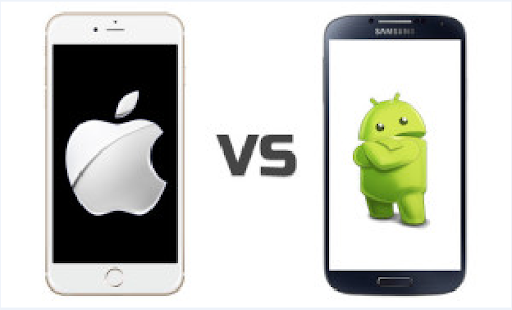
When it comes to choosing a smartphone, one of the most common dilemmas is whether to go for an Android or an iOS device. While both platforms have their pros and cons, in this article, we will explore why Android is better than iOS in detail. 5G innovation change the world and also change the Android apps also, Appmuck one the impact applications
Customization
One of the major advantages of Android over iOS is the level of customization it offers. Android users can customize their home screen, change their default apps, and even install custom ROMs. This level of flexibility allows users to tailor their device to their preferences and needs.
On the other hand, iOS devices have limited customization options, as Apple controls the entire ecosystem. While some customization is possible, it is not as extensive as on Android.
Affordability
Another advantage of Android over iOS is affordability. Android devices are available at various price points, from budget to high-end devices, making it accessible to a wide range of users. In contrast, iOS devices are known for their premium pricing, making them less accessible to budget-conscious users.
Expandable Storage
Most Android devices come with expandable storage, allowing users to add more storage space through an SD card. This is particularly useful for users who store a lot of media files or need extra space for apps. In contrast, iOS devices do not support expandable storage, and users have to rely on the internal storage.
Google Integration
As Android is developed by Google, it offers seamless integration with Google services, such as Gmail, Google Drive, and Google Maps. This makes it easier for users who rely on Google services to access and manage their accounts on their Android device.
While iOS does offer integration with Google services, it is not as seamless as on Android, as Apple has its own services that it promotes.
Multitasking
Multitasking is another area where Android excels over iOS. Android devices allow users to run multiple apps simultaneously, and switch between them effortlessly. This is particularly useful for users who need to multitask frequently, such as professionals who need to work on their devices.
In contrast, iOS devices offer limited multitasking capabilities, and users have to switch between apps manually.
Open Ecosystem
Android is an open-source platform, which means that it is free to use, and anyone can modify and distribute it. This has led to a vibrant ecosystem of developers, who have created various custom ROMs and apps. In addition, Google Play Store offers a vast selection of apps, making it easier for users to find the apps they need.
In contrast, iOS is a closed ecosystem, with Apple controlling the entire ecosystem. While this offers better security and privacy, it also limits the number of apps and customizations available to users.
Conclusion
While both Android and iOS have their strengths and weaknesses, Android has several advantages over iOS, including customization, affordability, expandable storage, Google integration, multitasking, and an open ecosystem. Ultimately, the choice between Android and iOS depends on the user’s preferences and needs. However, for users who prioritize customization, flexibility, and affordability, Android is the clear winner.








